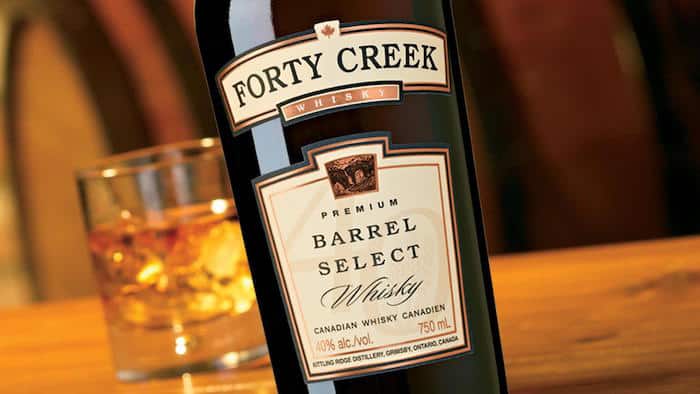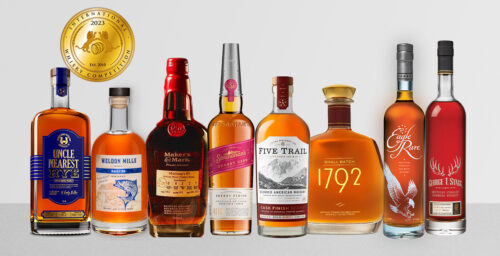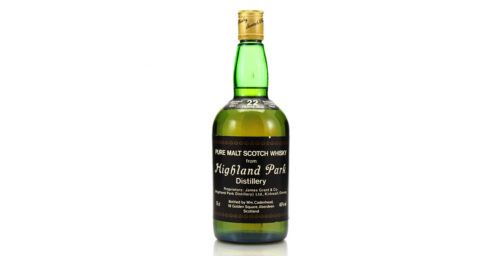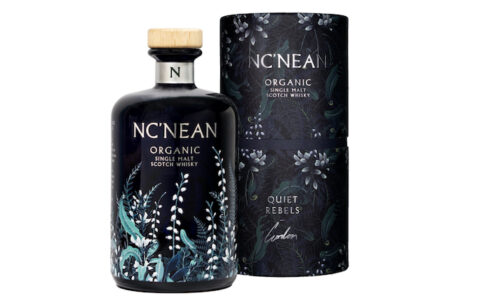Editor’s Note: This guest column comes to us courtesy of noted Canadian whisky writer Davin de Kergommeaux, who allowed us to reprint it with his permission from Whisky Intelligence.
Want to taste well-crafted whisky? It’s easy. Go to your local liquor store and pick up a bottle of Canadian Club 100% Rye, Gooderham & Worts or Forty Creek Barrel Select.
To watch the people at Canada’s largest distilleries make whisky is to witness true craftsmanship in action – impassioned, quality-obsessed craftspeople taking genuine pride in their products. When you taste one of their whiskies you know right away that it was crafted by people who have mastered their trade. This is as good as whisky gets, big distillery or small.

Recently, though, the word “craft” has been co-opted by some members of the micro-distilling sector to imply that somehow they are more authentic than larger distillers. They have not been around long enough to realize how little they know.
So let’s be clear: Craftsmanship has nothing to do with size. Craft is strictly about consistent quality and innovation grounded in substantial experience. Why so many inexperienced distillers want to begin by making whisky is beyond me. Whisky is one of the most difficult spirits to learn to make well. The result of their haste is that many of their whiskies just aren’t very enjoyable.
At an American event recently, I sampled about forty such whiskies from a dozen U.S. micro distillers. Some were drinkable, one was good, but most were not. I was dismayed that the term “craft whisky” had come to mean “crap whisky.” Canada’s micro distillers must take care not to make the same mistake.
Whisky has a special aura earned through centuries of studied refinement. When people buy whisky they are confident they are purchasing something they will recognize and enjoy. Whisky makers work diligently to maintain this reputation. One way for us to help is to be honest about each whisky we taste. Don’t accept mediocre whisky just because it comes from a small distiller.
Recently, I contributed to a U.S. book about micro distillers. The sector is so new in Canada that I had to assess some up-and-coming distilleries based solely on their potential. There is a lot of potential here, but they need to accept that they have a long way to go before that potential is realized.
Distilling contributes $5.8 billion annually to Canada’s GDP, virtually all of that generated by the large distillers. The major distilleries are setting the pace globally, and new distillers should take note of that. We are told that micro distilleries are hotbeds of innovation, but so far these innovations have simply been naïve reinventions of the wheel. Canada has been making great whisky for over 200 years and to date the micro distillers have done nothing that the majors haven’t already done well.
Some of Canada’s micro distillers know this and strive to learn from the majors. However, if Canada’s nascent micro-distilling industry is to thrive, some other practitioners will have to set their egos aside and rather than boasting about their authenticity, learn to produce whiskies that are as well made as those coming from the large distilleries.
Yes, some of Canada’s micro distillers make interesting products. However, if they forget that these are just the promise of better whiskies to come, their prospects are no better than America’s small distillers, many of whom crank out a barely palatable liquid then label it “whisky.” Critics there are beginning to lose patience, referring to “craft” whisky as expensive, unpalatable crap made by earnest young men who use the term “craft” as a license to sell inferior products.
We can do a lot better here in Canada, IF our small distillers overcome their conviction that they are struggling pioneers, and show some respect for the real pioneers who came two centuries before them. Consumers can help by holding the small distillers’ feet to the fire and not accepting so-so products. The days of trial and error learning are long behind us.
I repeat, craft has NOTHING to do with size. Rather, it demands patient, repeated practice by people who are talented to begin with. To date, here in Canada, real craft is found almost exclusively in the large distilleries. The micro distilleries, as often as not, are still training grounds, and frankly, not all of them will survive their training.
Yes, some of Canada’s small distillers make good solid whisky, but let’s be honest, most simply have not been around long enough to have mastered whisky making. It’s too soon to know if they have what it takes. Sure, some hire skilled consultants to help them, but they should not kid themselves that they are making whisky, when really they are buying lessons.
So, from now on let’s expunge the word “craft” from our vocabulary when referring to micro distillers. It’s not craft whisky, it’s WHISKY and if it’s not as good as what the major distillers make, the least its producers can do is stop using an ill-defined term to persuade us it is.
If we want to support small distillers, the best way to do that is with tough love. From now on, they are micro distillers. They won’t be worthy of the title “craft” until they have mastered their craft. And when we taste their whiskies, if they are not quite right we won’t pretend they are. It’s a big harsh world out there and pretending does not help anybody.







